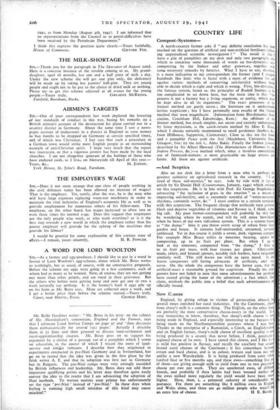And Sceptics
Also on my desk lies a letter from a man who is perhaps the greatest authority on agricultural research in the country. el I ant tired of these soil-mystics," he says. Side by side with it lies an article by Sir Daniel Hall (Countryman, January, 1940) which enlarges on this scepticism. He is in line with Prof. Sir George Stapledon in advocating " the inclusion of grass in the rotation " as a means of improving soil-fertility, and is extremely scornful of " extra-terrestrial rhythms, camomile water, &c " I must confess to a certain sympathy with this scepticism. The frequent charge that artificials turn potatoes black and deprive vegetables of vitamins and flavour is, I think, ratha big talk. My poor farmer-correspondent will probably by this time be wondering where he stands, and will be still more bewildered when he hears of my own ridiculous system. This is a system known as " the dump." Into it you throw every scrap of refuse from lawn, garden and house. It remains half-unattended, unturned, certainly unblessed. Yet in due course it yields a sweet, dark, vigorous compost For example Miss Bruce refers to tomatoes bearing, under ha composting, up to 3o fruit per plant. But when I go to look at my tomatoes, composted from " the dump," I fmd ul to 3o fruit per truss, with four trusses per plant. Chrysanthe- mum, celery, and brussel sprouts, notably rich feeders, have responded similarly well. This still leaves me with an open mind. It also leaves composters still hating advocates 6f artificials; and via versa. On the whole the composters have the better case, but the artificial-users a reasonable ground for scepticism - Finally the can posters have not failed to note that some advertisements for artificial have ceased giving the frame of the advertiser ; a fact which, the! claim, misleads the public into a belief that such advertisements an officially issued.


































 Previous page
Previous page